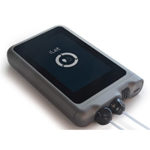 Researchers from Boston University have developed a bionic pancreas system that outperformed conventional insulin pump therapy for patients with type 1 diabetes, according to a trial conducted at Massachusetts General Hospital. The team’s work was published in The Lancet.
Researchers from Boston University have developed a bionic pancreas system that outperformed conventional insulin pump therapy for patients with type 1 diabetes, according to a trial conducted at Massachusetts General Hospital. The team’s work was published in The Lancet.
This device is the latest development in the race to make an entirely closed loop insulin pump system, or “artificial pancreas” for patients with type 1 diabetes. In September, Medtronic‘s (NYSE:MDT) MiniMed 670G hybrid closed loop system became the 1st device of its kind to win FDA clearance. Boston University has licensed the patents for its system to start-up Beta Bionics, which is developing and commercializing the iLet bionic pancreas.
The system has a collection of previous studies validating its use in adult patients, adolescents and for children as young as 6 years old. The bionic pancreas controls blood sugar using insulin and a hormone that increases glucose levels called glucagon.
“For study participants living at home without limitations on their activity and diet, the bionic pancreas successfully reduced average blood glucose, while at the same time decreasing the risk of hypoglycemia,” MGH diabetes unit Dr. Steven Russell said in prepared remarks. “This system requires no information other than the patient’s body weight to start, so it will require much less time and effort by health care providers to initiate treatment. And since no carbohydrate counting is required, it significantly reduces the burden on patients associated with diabetes management.”
The bionic pancreas is wirelessly connected to its 2 pumps using a smartphone, which receives a reading every 5 minutes from a continuous glucose monitor. The algorithms controlling the system calculate a dose of either insulin or glucagon depending on the patient’s blood glucose level. The device will also deliver anticipatory insulin doses if patients enter information about an upcoming meal.
The study included 39 adults with type 1 diabetes who had used an insulin pump to manage their diabetes for at least 6 months prior to the start of the trial. All participants used the bionic pancreas for 11 days and their usual insulin pump for the other 11-day study period.
When participants were using the bionic pancreas, their average blood glucose levels were 141 mg/dl compared to 162 mg/dl while undergoing standard treatment. Patients also experienced less hypoglycemia while sleeping using the bionic pancreas compared to their standard regimen.
“Patients with type 1 diabetes worry about developing hypoglycemia when they are sleeping and tend to let their blood sugar run high at night to reduce that risk,” Russell explained. “Our study showed that the bionic pancreas reduced the risk of overnight hypoglycemia to almost nothing without raising the average glucose level. In fact the improvement in average overnight glucose was greater than the improvement in average glucose over the full 24-hour period.”
“The availability of the bionic pancreas would dramatically change the life of people with diabetes by reducing average glucose levels – thereby reducing the risk of diabetes complications – reducing the risk of hypoglycemia, which is a constant fear of patients and their families, and reducing the emotional burden of managing type 1 diabetes,” co-author Edward Damiano added.

